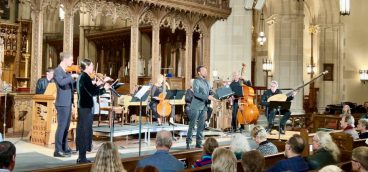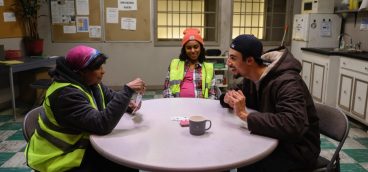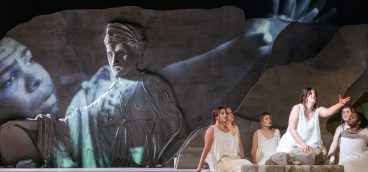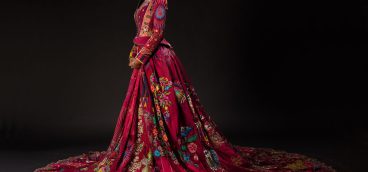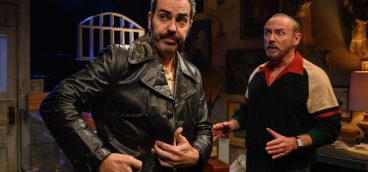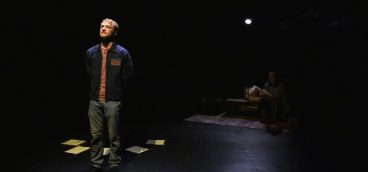Pittsburgh Public Theater’s “The Importance of Being Earnest,” A Sincerely Funny Play
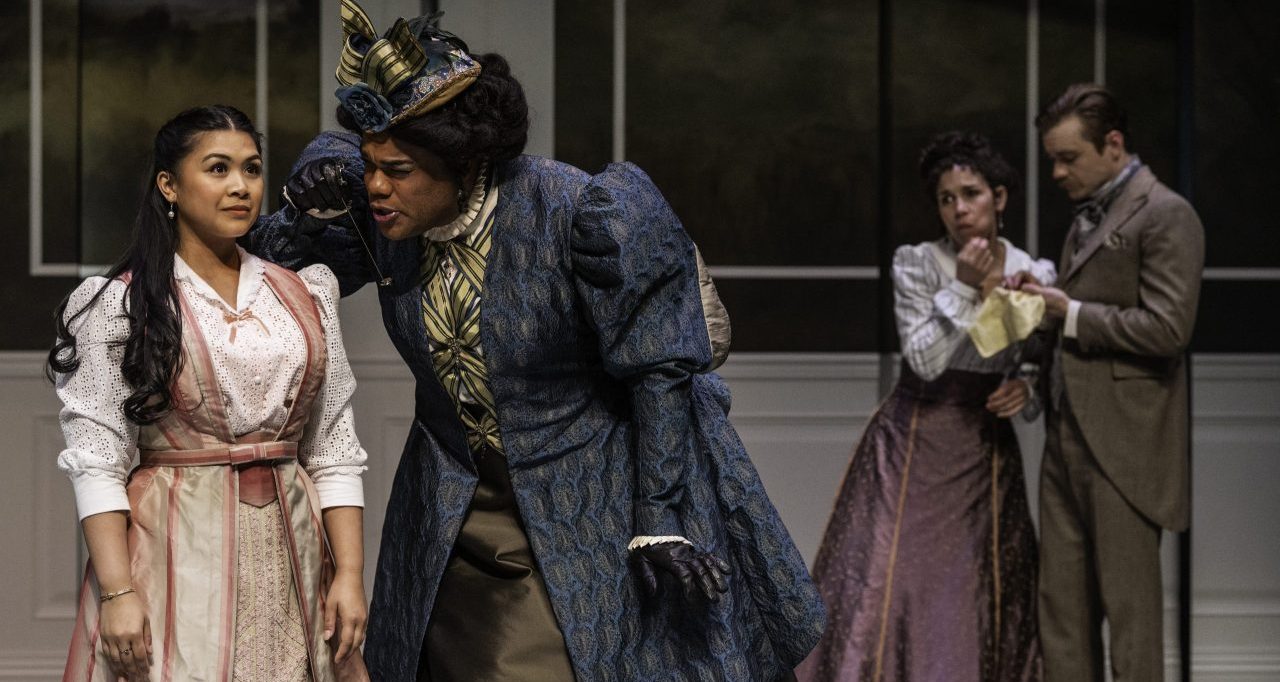
There are certain plays we admire for their timeless quality, that somehow not only survive, but thrive over decades, centuries, and even millennia. “Oedipus Rex” and “Hamlet,” for example, have proven themselves in this respect, while others like “Waiting for Godot,” and “American Buffalo” certainly have the potential to join them. Oscar Wilde’s “The Importance of Being Earnest” (1895), is well on its way down this path, even though, as an ebullient comedy, it seemingly contrasts with the tragic nature of these others. However, there is an essential characteristic that makes all of these theatrical achievements similar — and is intrinsic to their enduring nature — which, I would argue, is their common lack of sincerity.
We think of Wilde as a playwright, and a poet, but he is equally a great critic; one of the strongest in English since Samuel Johnson. In his seminal essay, “The Critic as Artist” (1891) — which may be the best Platonic dialogue not written by Plato — he states, “For the real artist is he who proceeds, not from feeling to form, but from form to thought and passion. . . . All bad poetry springs from genuine feeling.”
And thus we have “The Importance of Being Earnest,” which is a very earnest drama about, ironically, never being sincere. If this sounds kind of crazy, you’re right, and if you like this kind of inversive logic, then you’ll be in for an entertaining evening with Pittsburgh Public Theater’s current production.
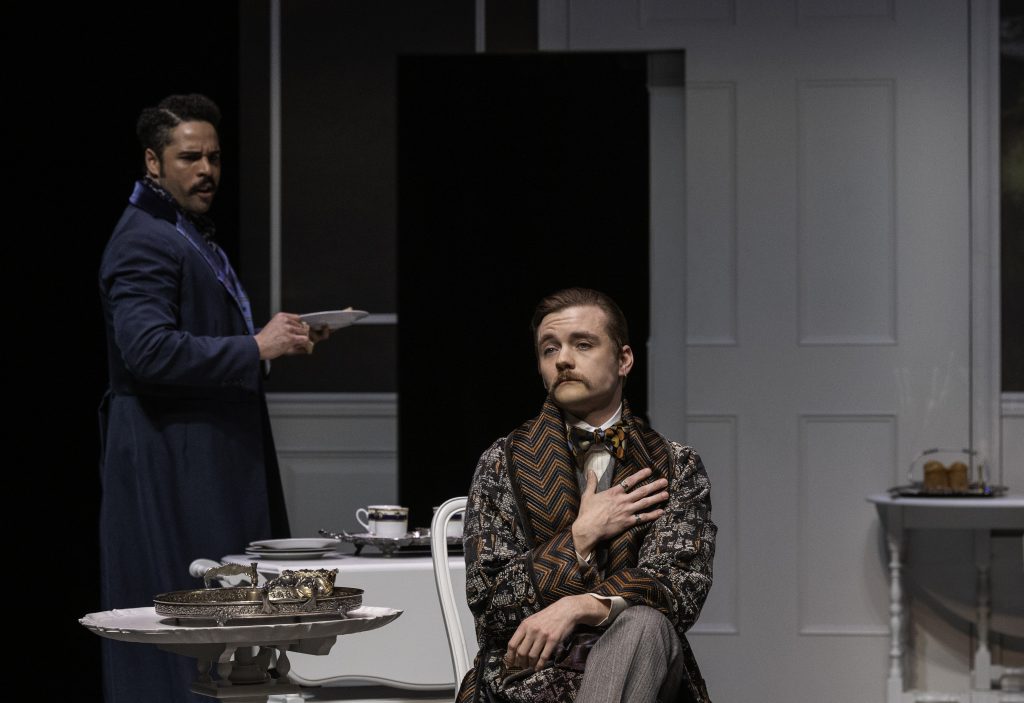
Directed and adapted by Jenny Koons, this show takes the British nature of Wilde’s jocularity and ups the ante by injecting a dose of American slapstick comedy. The laughs are played broadly and the acting approaches the histrionics of the Marx Brothers. This is neither good or bad – simply a choice – but perhaps a delimiting one, as the British trait of finding humor in something bottled up that irrepressibly slips out of its container often lends a “less-is-more” style of comic intensity. Think of those classic, early Monty Python sketches which introduced this type of droll sensibility to American audiences. There would be no John Cleese without Oscar Wilde.
The plot of this farce involves two couples who want to get married, but every social norm and custom stands implacably in their way. The most daunting of these obstacles is the imposing Lady Bracknell (David Ryan Smith), who is a colossus of amusing obduracy; imagine a female Falstaff set in the Victorian era who eats cucumber sandwiches but could play offensive lineman for any NFL team. And Mr. Smith indeed could be envisioned as a football player. Draped in layers of elegant cloth – including bodice, petticoat, skirt, and hat – his Lady Bracknell enters each scene with the delicacy of a rhinoceros.
One of the highlights of this show is the famous “interview” sequence in which Lady Bracknell interrogates Jack (Paul Deo, Jr.), a wealthy bachelor of indeterminate ancestry who wishes to marry her daughter, Gwendolen (Veronica Del Cerro). Subjecting him to a barrage of intrusive questions, she asks, “I have always been of the opinion that a man who desires to get married should know either everything or nothing. Which do you know?” Jack responds, “I know nothing, Lady Bracknell.” She replies, “I am pleased to hear it. I do not approve of anything that tampers with natural ignorance.” And the play continues in this manner, with such witty ripostes building gloriously upon each other.
Jack’s friend Algernon (Dylan Marquis Meyers) intensifies the antics as he vies to marry Cecily (Alex Manalo), who turns out to be Jack’s ward. At this point the plot escalates beyond rational explication; suffice it to say that to the credit of the cast and the director, the intensity grows, bringing the audience to the peak of hilarity. It’s rare to see a theater erupt in laughter so completely.
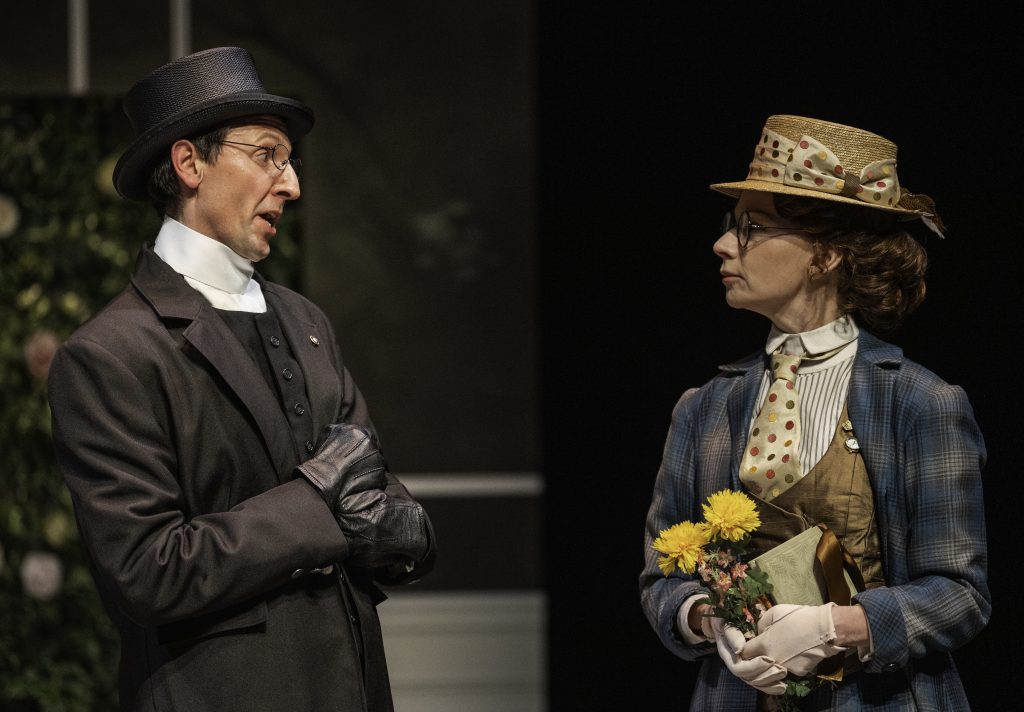
Messrs. Deo, Jr. and Meyers engage in the kind of playful competitiveness these characters require. Jack’s flustered anxiousness and Algernon’s cavalier insouciance blend in a charming – somehow balanced – manner. As to the female love objects, their humorous dialogue in act two leads to a delicious climax, such that Gwendolen’s declaration of rapprochement to Cecily, “You will call me sister, will you not?” brings the house down.
Also upholding the levity are Susan M. Lynskey as the stentorian tutor Miss Prism, and Joseph McGranaghan in multiple roles comprising both foppish servants, and the austere Rev. Chasuble.
As a stylistic choice, director Koons speeds the delivery of lines in the style of those 1940s Hollywood screwball comedies like “His Girl Friday.” But not every utterance in Wilde needs to be played for a laugh; many are simply astonishing, and layer together like exotic spices to be savored — deserving a breath, and a beat, to be fully absorbed.
Jason Ardizzone-West’s set somehow manages to evoke elements of both Fellini’s “Juliet of the Spirits” and Rowan and Martin’s Laugh-In “Joke Wall,” in which characters pop out of trap doors – in this case, windows – to deliver dialogue. It’s strange, it’s minimalist, and it certainly works, but the spare, reflective stage surfaces amplify the already loud delivery of the characters, which surely would have been dampened by the abundance of furniture historically found in Victorian rooms.
Hugh Hanson’s costumes are rich and impeccable, as if to offset the starkness of the settings. Annmarie Duggan designed the unusually effulgent lighting, and Uptownworks achieved a high level of sonic clarity through microphones placed unobtrusively on the actors.
Although the two-hour runtime is ideal, Wilde made things difficult for directors when he changed the number of acts from four to three, thus engendering the conundrum of where to place the odd, middle act. Here, it is conjoined with the first act, making the sitting experience unbalanced – about three quarters of the show transpires before the intermission, setting up a brisk final act that seems too short in comparison.
However, this is only a small anomaly in an otherwise rich and boisterously played production. If you want to enjoy a truly fun theatrical spectacle, go see “The Importance of Being Earnest,” which Wilde subtitled, “A Trivial Comedy for Serious People.” I guarantee he meant this sincerely.
THE IMPORTANCE OF BEING EARNEST continues through April 14th at the O’Reilly Theater, Downtown. $35-93. www.ppt.org or 412-316-1600.


